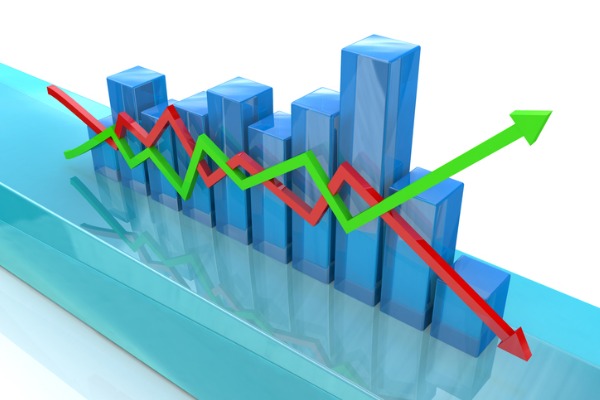Value versus growth: where next?
In a low-growth world, it is argued, investors are prepared to pay ever higher prices for growth stocks.
22nd September 2021 09:44
by Tom Bailey from interactive investor
In a low-growth world, it is argued, investors are prepared to pay ever higher prices for growth stocks.

One of the key themes of markets over the past decade has been the outperformance of growth over value. Shares deemed to exhibit growth characteristics (fast sales growth, revenue growth, etc) have broadly performed better than shares in companies that exhibit value characteristics (such as low share price when compared to earnings, book value, etc).
Over the past 10 years, the MSCI All-Country World index has returned 239%. In comparison, the MSCI ACWI Growth index has outperformed with a return of 335%, while the MSCI ACWI Value index has underperformed, with a return of 159%.
Many reasons have been given for the underperformance of value. On popular theory is that investors were happy to pay ever higher multiples for growth stocks due to the sluggish economic backdrop. Following the 2007-08 financial crisis, the economic recovery of advanced economies was relatively weak, with growth rates below historic norms. In a low-growth world, it is argued, investors were prepared to pay ever higher prices for growth stocks – pushing up prices.
- What is behind the supposed death of value investing?
- The five main investment factors to get to grips with
- Factor or sector ETFs: which were best for riding the value rally?
The other side of this is that value stocks tend to be cyclical companies, meaning their performance is aligned with the performance of the wider economy. When economic growth is strong, they perform well, and when it is weak they perform poorly. Therefore, in the sluggish economic environment of the 2010s, their share prices disappointed.
During the height of the Covid-19 pandemic, the performance gap widened even further. However, with the announcement of successful vaccines in November 2020, the performance of value picked up. The vaccines, investors hoped, would see the global economy re-open and bounce back. This economic optimism saw highly cyclical value shares start to finally outperform. From November to May, the MSCI ACWI Value index returned 25.2%, outperforming both the broad index (19.8%) and the MSCI ACWI Growth index (14.6%).
AsAntony Rayner from Premier Miton Investors notes, “A big part of the better fortunes for value was the strong economic bounceback from Covid lockdown weakness, compounded by very loose monetary policy and newly loose fiscal policy. This benefited economically sensitive companies, many of which were categorised as value.”
However, since then, the fortunes of value shares have faded once more. Year-to-date, the MSCI ACWI Growth and MSCI ACWI Value index are neck and neck in terms of performance. Principally, the emergence of new Covid-19 strains and the limited capabilities of vaccines has revived growth scares. As a result, shares that are sensitive to economic growth (i.e. value) have started to perform less well, while investors have poured money back into growth stocks.
- The ETFs Show: Roger Federer, Warren Buffett and passive investing
- Open an ISA with interactive investor. Simply click here to find out how
- Watch our latest interviews. Just subscribe to the ii YouTube channel here
The question, therefore, is where does the value versus growth debate go from here? Will a weak economic growth environment emerge, benefiting growth stocks? Or will we continue to see a strong recovery, supporting economically sensitive value shares?
According to Rayner, the uniqueness of the situation ahead makes it very hard to tell. He says, “the economic environment is less visible than normal, with the aforementioned variant, evolving responses from governments in terms of severity of lockdowns, significant supply chain issues, and loose but uncertain US fiscal policy, never mind the growing focus on tapering”.
These factors are highly unprecedented and not what economists and central bankers usually have to consider. Therefore, says Rayner, “[it is] best not to assume too much going forward in terms of growth or value. The market’s ability to turn on a sixpence reminds investors how important it is to be either balanced or nimble.”
These articles are provided for information purposes only. Occasionally, an opinion about whether to buy or sell a specific investment may be provided by third parties. The content is not intended to be a personal recommendation to buy or sell any financial instrument or product, or to adopt any investment strategy as it is not provided based on an assessment of your investing knowledge and experience, your financial situation or your investment objectives. The value of your investments, and the income derived from them, may go down as well as up. You may not get back all the money that you invest. The investments referred to in this article may not be suitable for all investors, and if in doubt, an investor should seek advice from a qualified investment adviser.
Full performance can be found on the company or index summary page on the interactive investor website. Simply click on the company's or index name highlighted in the article.